|
Books Should Be Free Loyal Books Free Public Domain Audiobooks & eBook Downloads |
|
|
Books Should Be Free Loyal Books Free Public Domain Audiobooks & eBook Downloads |
|
Fiction |
|---|
|
Book type:
Sort by:
View by:
|
By: Frances Hodgson Burnett (1849-1924) | |
|---|---|
 "Le Monsieur de la Petite Dame"
"Le Monsieur de la Petite Dame"
| |
 Lodusky
Lodusky
| |
 "Surly Tim" A Lancashire Story
"Surly Tim" A Lancashire Story
| |
By: Charlotte Brontë (1816-1855) | |
|---|---|
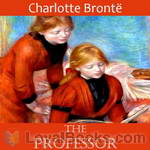 The Professor
The Professor
The book tells the story of a young man named William Crimsworth. It describes his maturation, his loves and his eventual career as a professor at an all-girls’ school. | |
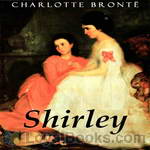 Shirley
Shirley
Shirley is an 1849 social novel by the English novelist Charlotte Brontë. It was Brontë's second published novel after Jane Eyre (originally published under Brontë's pseudonym Currer Bell). The novel is set in Yorkshire in the period 1811–1812, during the industrial depression resulting from the Napoleonic Wars and the War of 1812. The novel is set against a backdrop of the Luddite uprisings in the Yorkshire textile industry. | |
By: Robert Louis Stevenson | |
|---|---|
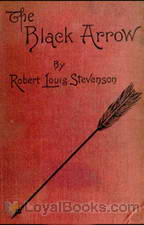 The Black Arrow; a Tale of Two Roses
The Black Arrow; a Tale of Two Roses
The Black Arrow tells the story of Richard (Dick) Shelton during the Wars of the Roses: how he becomes a knight, rescues his lady Joanna Sedley, and obtains justice for the murder of his father, Sir Harry Shelton. Outlaws in Tunstall Forest organized by Ellis Duckworth, whose weapon and calling card is a black arrow, cause Dick to suspect that his guardian Sir Daniel Brackley and his retainers are responsible for his father’s murder. Dick’s suspicions are enough to turn Sir Daniel against him, so he has no recourse but to escape from Sir Daniel and join the outlaws of the Black Arrow against him... | |
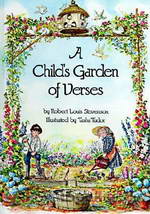 A Child's Garden of Verses
A Child's Garden of Verses
Beloved by many generations of children, A Child’s Garden of Verses is a beautiful collection of children’s poetry. Sometimes thoughtful, sometimes whimsical, but always fun. | |
 The Wrong Box
The Wrong Box
The Wrong Box is a comedy about the ending of a tontine (a tontine is an arrangement whereby a number of young people subscribe to a fund which is then closed and invested until all but one of the subscribers have died. That last subscriber then receives the whole of the proceeds). The story involves the last two such survivors and their relations, a train crash, missing uncles, surplus dead bodies and innocent bystanders. A farce really. | |
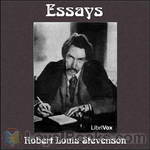 Essays of Robert Louis Stevenson
Essays of Robert Louis Stevenson
“Extreme busyness…is a symptom of deficient vitality; and a faculty for idleness implies a catholic appetite and a strong sense of personal identity.” What comforting words for the idle among us! Like many of the best essayists, Stevenson is very much the genial fireside companion: opinionated, but never malicious; a marvellous practitioner of the inclusive monologue. In this collection of nine pieces he discusses the art of appreciating unattractive scenery, traces the complex social life of dogs, and meditates in several essays upon the experience of reading literature and writing it... | |
 Master of Ballantrae
Master of Ballantrae
| |
 In the South Seas
In the South Seas
| |
 Island Nights' Entertainments
Island Nights' Entertainments
A marvelous depiction of two sides of South Sea Islands' life through three separate tales. One, the experience of the incoming British keen to live free and exploit the innocent; the other the supernatural as perceived by Stevenson working in the lives of the natives. One tale carries the germ of the story of Madame Butterfly, since become a part of Western culture. Another is an extraordinary retelling of a German horror story transposed to a South Sea Island setting. The last is an effort of the pure Stevensonian imagination and there can be nothing better. | |
 Fables
Fables
| |
 Across the Plains
Across the Plains
| |
 Tales and Fantasies
Tales and Fantasies
| |
 Inland Voyage
Inland Voyage
As a young man, Stevenson wished to be financially independent and began his literary career by writing travelogues. This is his first published work, written at a time when travel for pleasure was still a rarity. He and a friend traveled by canoe through France and Belgium and he relates how they were thrown in jail, mistaken for traveling salesmen and became embroiled in gypsy life. | |
 Prince Otto, a Romance
Prince Otto, a Romance
| |
 Stories By English Authors: France
Stories By English Authors: France
| |
 The Silverado Squatters
The Silverado Squatters
| |
 Weir of Hermiston
Weir of Hermiston
| |
 St. Ives, Being the Adventures of a French Prisoner in England
St. Ives, Being the Adventures of a French Prisoner in England
| |
 The Waif Woman
The Waif Woman
| |
By: Bram Stoker | |
|---|---|
 The Jewel of Seven Stars
The Jewel of Seven Stars
The Jewel of Seven Stars (also published under the name: The Jewel of the Seven Stars) is a horror novel by Bram Stoker first published in 1903. The story is about an archaeologist’s plot to revive Queen Tera, an ancient Egyptian mummy. | |
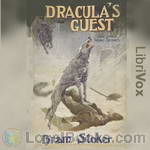 Dracula's Guest and other Weird Tales
Dracula's Guest and other Weird Tales
Nine Gothic Horror Tales by the author of Dracula. Note : These tales are not for the squeamish!!! 0r a dark windy night. | |
 The Man
The Man
| |
By: L. Frank Baum (1856-1919) | |
|---|---|
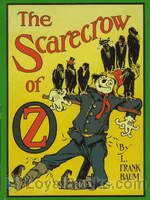 The Scarecrow of Oz
The Scarecrow of Oz
Published in 1915, The Scarecrow of Oz is the ninth book in the Oz book series and focuses on the adventures of Cap’n Bill, Trot, and the Scarecrow, who find themselves entangled in the politics of Jinxland and must work against formidable odds to overthrow its despot and restore rule to its rightful successor. Apart from the appearances of familiar faces, the novel also accommodates a fresh set of characters and magical creatures residing in the Land of Oz, further contributing to its classification as a typical Baum masterpiece... | |
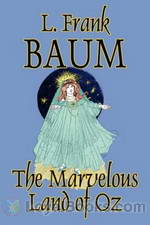 The Marvelous Land of Oz
The Marvelous Land of Oz
Published in 1904, The Marvelous Land of Oz is the second book in Baum’s Oz series and follows the adventures of Tip, a young boy who travels the mystical Oz after running away from the terrifying witch Mombi. Furthermore, the novel reunites readers with familiar characters including the Scarecrow, Tin Woodman, Glinda the Good Witch, while also introducing bright new characters who deem to be just as memorable. Unlimited action, intense magic, captivating characters, and an unexpected twist, the adventure novel has remained a classic for generations, and has only strengthened the series appeal with its fresh intake on the familiar set... | |
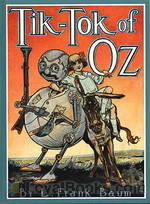 Tik-Tok of Oz
Tik-Tok of Oz
Betsy Bobbin encounters many strange and exciting adventures and people in the land of Oz; a side-plot is Queen Ann of Oogaboo’s mission to take over Oz. | |
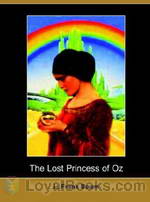 The Lost Princess of Oz
The Lost Princess of Oz
Who is stealing all the magic in Oz? Dorothy and her friends set out to comb all of Oz, not only for magic stolen from Glinda and the Wizard, but also for the kidnapped princess, Ozma. Along the way, they explore regions never seen in other Oz books, meeting strange and interesting people and animals, and falling into peril more than once. It’s a desperate mission – for if the thefts are all linked, then it means that some magician unknown to them has acquired powers beyond any available to them now. How will they find him? And how will they conquer him? Not one of them knows – but with continuing faith that goodness will triumph, they march forth to try. | |
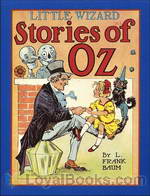 Little Wizard Stories of Oz
Little Wizard Stories of Oz
The “Little Wizard Stories of Oz” are six short stories written by L. Frank Baum in 1913. By all accounts, Baum intended to finish the Oz series with “The Emerald City of Oz,” published in 1910. Following that, he attempted to write non-Oz books, publishing “The Sea Fairies” in 1911 and “Sky Island” in 1912. But, (as Baum himself laments in the prefaces of many of his Oz books,) his “little tyrants” were only interested in hearing more Oz stories. So in 1913, he returned to writing about Oz, putting out both The “Little Wizard Stories” and “The Patchwork Girl of Oz” that year... | |
 The Master Key
The Master Key
The Master Key was one of Baum’s earliest full length fantasy books for children, published in 1901 just one year after The Wonderful Wizard of Oz. The protagonist, Rob, while experimenting in his workshop, accidentally summons up an electrical fairy who presents him with electrical devices so advanced as to seem magical. His gifts include a flying contraption, a stun gun, and something resembling an omniscient portable TV set. Rob travels the world, rendering assistance to European heads of state and narrowly escaping disaster at the hands of “primitive” cannibals, Turks and Tatars, pirates, and evil scientists who try to steal his inventions... | |
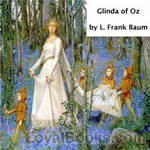 Glinda of Oz
Glinda of Oz
Glinda of Oz is the fourteenth Land of Oz book and is the last one written by the original author L. Frank Baum, although the series was continued after his death by several other authors. Dorothy and Ozma discover that a war is brewing in a distant and unexplored part of Oz, between two mysterious races, the Flatheads and the Skeezers. The girls set out to try to prevent the fighting, not knowing what dangers await them. | |